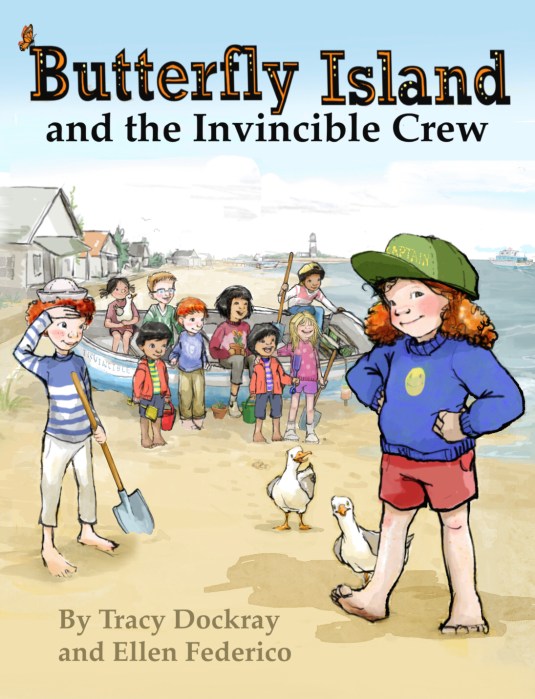 By Damaso Reyes ~ For many of us summer means backyard barbecues, time with friends and family and this year making sure we keep them safe from COVID. But there is another virus we must safeguard our children from, and that’s misinformation. Like COVID, its impact can range from inconvenient to deadly, so we need to take it just as seriously.There is a perception that our youngsters are “digital natives” and know more about how to navigate the world of social media than we do. That’s true but only up to a point. Our kids have grown up with phones and tablets in their hands since they could sit up so they know how to surf the web and make cute dance videos on TikTok but that doesn’t mean they understand how to spot misinformation.A study from Stanford reported that “more than 96 percent of high school students surveyed failed to consider that ties to the fossil fuel industry might affect the credibility of a website about climate change, while more than half believed a grainy video on Facebook that claimed to show ballot stuffing (which was actually shot in Russia) constituted “strong evidence” of voter fraud in the United States.”Another recent study also indicates that that the fastest growing rate of online scam victims are 20-years old or younger, with a surge of 156 percent since 2017 – a number that even outpaces our senior citizen populations over the same time period.So how can we help our kids stay safe? There are two important steps that you can take: first, you can advocate for our schools to make media literacy instruction part of your child’s curriculum. Second, you can begin talking to your kids about where they get their news and information. Engage with them about what they are seeing on social media using examples they might have come across or asking them to talk to you about content they see online that they are unsure is real or fake.During the Olympics a post shot around the world on social media that claimed tennis player Novak Djokovic was criticizing Simone Biles, who had recently withdrawn from some Olympic events citing mental health concerns.Then the meme uses a popular misinformation technique claiming that Djokovic was a hypocrite who skipped his own Olympic doubles match after a “meltdown.” This meme aims for a weakness we all have: confirmation bias or the natural tendency to accept as true information that which confirms what we already believe. And this example tricks in an especially insidious way: by twisting the facts to create a false narrative.What is interesting about this meme is that it does not use an image that has been completely photshopped or completely make up a quotation. In fact, Djokovic actually said those words, but he wasn’t talking about Biles, he was referring to himself and his own outlook on competitive pressure. And USA Today points out in a fact check that he pulled out of his doubles match due to an injury not as a result of his “meltdown.”But if you happen not to like Djokovic or if your family happen to cheer for Biles, the meme will confirm your feelings of dislike or support. After all, when we come across memes like this on Facebook or social media we don’t know who created them so there is no accountability.It’s important to help your kids understand that not all information is created equal or should be trusted. Just because our friends are sharing a meme doesn’t mean that it is accurate. Help your kids build a mental framework about how to determine if something is accurate.Ask your kids, is this true and how do you know this is true? Are sources cited? If not, that’s a bad sign; if so we should investigate that source ourselves and try to determine if it is trustworthy. There’s a big difference between standards-based news organizations like The Wall Street Journal and The New York Times and some random website or blog, and as simple as that may sound to you, your 15-year-old may not understand this concept. Another question you can work through with your kids is can we look up the quote or fact in the meme using a search engine to see if it is accurate or if it is missing important context?The most important idea you can share with the young people in your life is that they should not share or like a post that they aren’t 100 percent sure is accurate. Even if it feels like it is correct or, even more seductively, it feels like it should be correct, don’t let your kids fall for the confirmation bias trap those who are creating misinformation have laid out for them.Something else you can do with your kids is to make an informal list of some of the people and pages you follow on Facebook, Twitter and other platforms. If you’re like most Americans your family gets a lot, if not most, of your information from social media. But if you’re only following friends and celebrities the information that you’re getting on social media is likely not of a very high quality. So, add some trustworthy news organizations to your online information diet, and live a little healthier.While there is no perfect vaccine against misinformation, we can take common sense steps to protect our most vulnerable.Damaso Reyes is an independent journalist and the founder of www.Clarify.Media, a media literacy training and consulting company.
By Damaso Reyes ~ For many of us summer means backyard barbecues, time with friends and family and this year making sure we keep them safe from COVID. But there is another virus we must safeguard our children from, and that’s misinformation. Like COVID, its impact can range from inconvenient to deadly, so we need to take it just as seriously.There is a perception that our youngsters are “digital natives” and know more about how to navigate the world of social media than we do. That’s true but only up to a point. Our kids have grown up with phones and tablets in their hands since they could sit up so they know how to surf the web and make cute dance videos on TikTok but that doesn’t mean they understand how to spot misinformation.A study from Stanford reported that “more than 96 percent of high school students surveyed failed to consider that ties to the fossil fuel industry might affect the credibility of a website about climate change, while more than half believed a grainy video on Facebook that claimed to show ballot stuffing (which was actually shot in Russia) constituted “strong evidence” of voter fraud in the United States.”Another recent study also indicates that that the fastest growing rate of online scam victims are 20-years old or younger, with a surge of 156 percent since 2017 – a number that even outpaces our senior citizen populations over the same time period.So how can we help our kids stay safe? There are two important steps that you can take: first, you can advocate for our schools to make media literacy instruction part of your child’s curriculum. Second, you can begin talking to your kids about where they get their news and information. Engage with them about what they are seeing on social media using examples they might have come across or asking them to talk to you about content they see online that they are unsure is real or fake.During the Olympics a post shot around the world on social media that claimed tennis player Novak Djokovic was criticizing Simone Biles, who had recently withdrawn from some Olympic events citing mental health concerns.Then the meme uses a popular misinformation technique claiming that Djokovic was a hypocrite who skipped his own Olympic doubles match after a “meltdown.” This meme aims for a weakness we all have: confirmation bias or the natural tendency to accept as true information that which confirms what we already believe. And this example tricks in an especially insidious way: by twisting the facts to create a false narrative.What is interesting about this meme is that it does not use an image that has been completely photshopped or completely make up a quotation. In fact, Djokovic actually said those words, but he wasn’t talking about Biles, he was referring to himself and his own outlook on competitive pressure. And USA Today points out in a fact check that he pulled out of his doubles match due to an injury not as a result of his “meltdown.”But if you happen not to like Djokovic or if your family happen to cheer for Biles, the meme will confirm your feelings of dislike or support. After all, when we come across memes like this on Facebook or social media we don’t know who created them so there is no accountability.It’s important to help your kids understand that not all information is created equal or should be trusted. Just because our friends are sharing a meme doesn’t mean that it is accurate. Help your kids build a mental framework about how to determine if something is accurate.Ask your kids, is this true and how do you know this is true? Are sources cited? If not, that’s a bad sign; if so we should investigate that source ourselves and try to determine if it is trustworthy. There’s a big difference between standards-based news organizations like The Wall Street Journal and The New York Times and some random website or blog, and as simple as that may sound to you, your 15-year-old may not understand this concept. Another question you can work through with your kids is can we look up the quote or fact in the meme using a search engine to see if it is accurate or if it is missing important context?The most important idea you can share with the young people in your life is that they should not share or like a post that they aren’t 100 percent sure is accurate. Even if it feels like it is correct or, even more seductively, it feels like it should be correct, don’t let your kids fall for the confirmation bias trap those who are creating misinformation have laid out for them.Something else you can do with your kids is to make an informal list of some of the people and pages you follow on Facebook, Twitter and other platforms. If you’re like most Americans your family gets a lot, if not most, of your information from social media. But if you’re only following friends and celebrities the information that you’re getting on social media is likely not of a very high quality. So, add some trustworthy news organizations to your online information diet, and live a little healthier.While there is no perfect vaccine against misinformation, we can take common sense steps to protect our most vulnerable.Damaso Reyes is an independent journalist and the founder of www.Clarify.Media, a media literacy training and consulting company.































